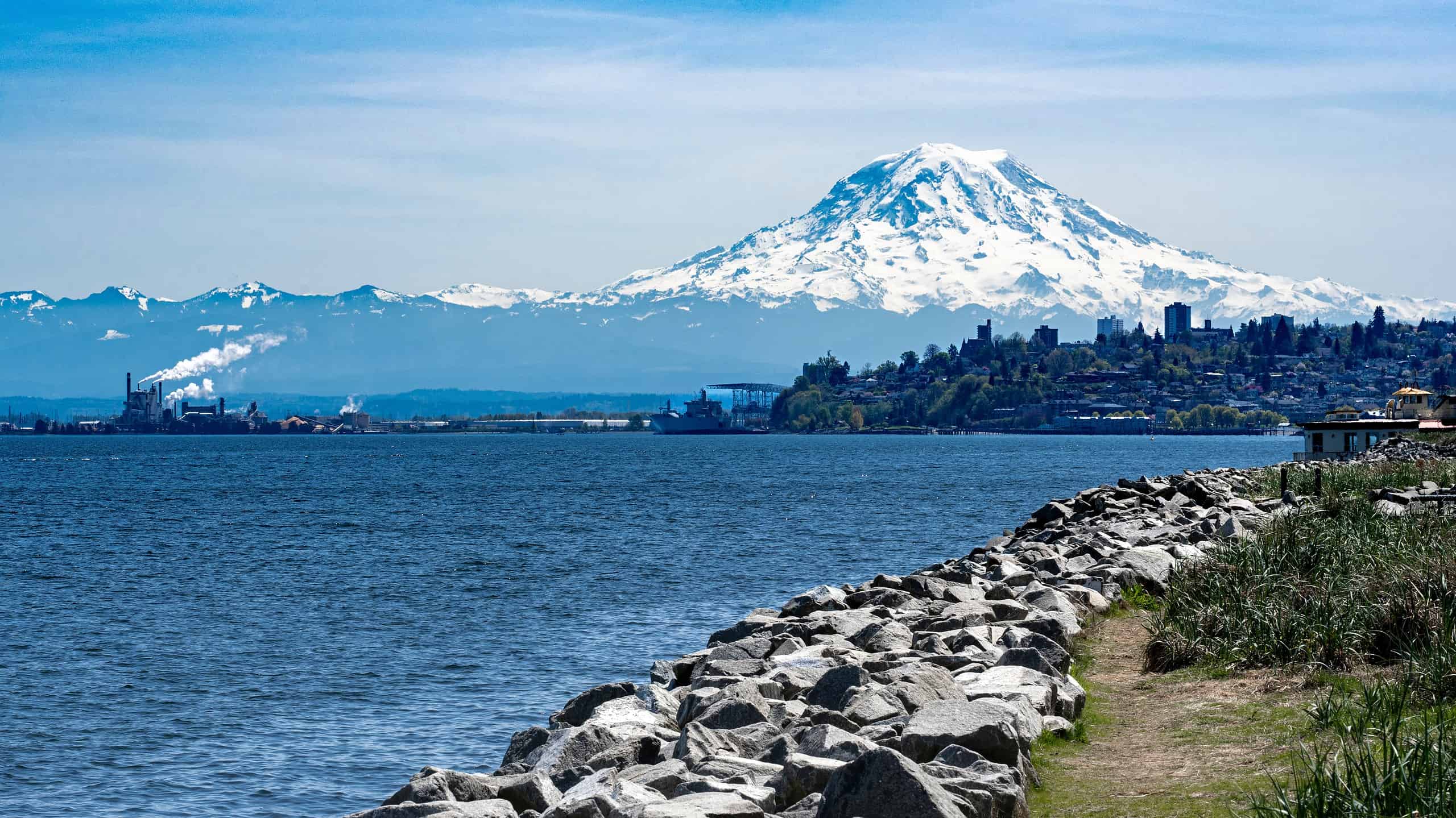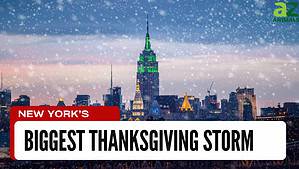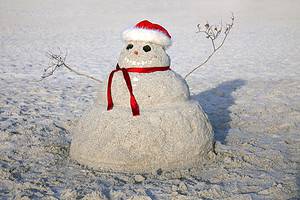Washington State is prone to earthquakes because of its geological setting. It has the second highest risk of large earthquakes in the United States, and all 3,000+ miles of its coast are at risk of a tsunami.
Over 1,000 earthquakes happen in this state each year. The state has experienced over 20 damaging earthquakes in the last 125 years when records were first kept. Therefore, it’s important to prepare for an earthquake no matter where you live in the state.
However, Ruston is the #1 at-risk town in Washington State. It has an earthquake index of 37.91, the highest in the state. To learn why, keep reading.
What Is the Earthquake Index?

The earthquake index measures the risk a particular area has to experience seismic activity.
©iStock.com/LuckyTD
The earthquake index measures the risk of earthquakes in an area. It’s based on many factors, including the history of earthquakes in the area and what we know about its faults.
Of course, this is just an educated guess. Earthquakes aren’t predictable – yet. The accuracy of the earthquake index depends on the accuracy of the data used to calculate it. The calculation is more accurate if we have good records of the frequency, magnitude, and impact of earthquakes in the area.
The earthquake index does not account for how much damage the earthquake might do – it just rates how likely an earthquake is to occur. It doesn’t consider how well the buildings in the area are constructed, for instance, or how many people live there.
Ruston’s Earthquake Risk
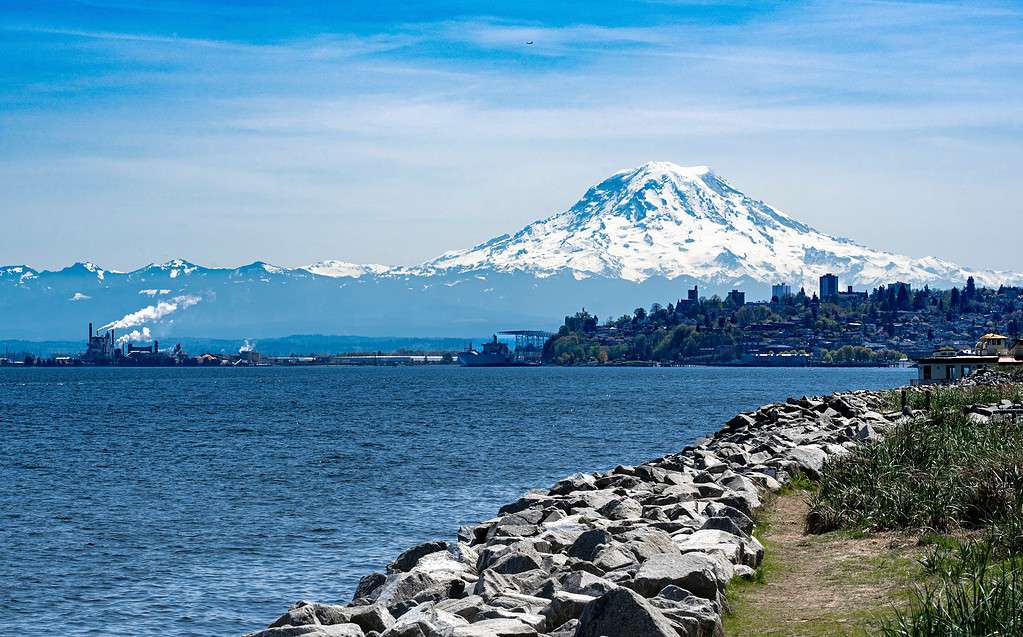
From Ruston, visitors and residents can view Mount Rainier.
©Jeff Westhead/Shutterstock.com
Ruston is a small city in Pierce County, WA, with a population of 1,055 as of 2020. It has a history dating back to 1890 when it was founded as a company town for the Tacoma Smelting & Refining Company by W.R. Rust, an industrialist.
The city was originally called Smelter but changed its name to Ruston in 1906 to honor its founder. Ruston is located on the shores of Commencement Bay and is surrounded by the city of Tacoma on three sides.
It is known for its quaint and vibrant atmosphere and scenic views of the Puget Sound.
However, it also has the highest earthquake index in the state, at 37.91. This rating is high relative to the rest of the United States and Washington State. That said, it is far from being the highest in the nation.
Currently, LA has the highest earthquake index of 99.99. San Francisco and Anchorage, AK, also have 99.99 earthquake indexes. Memphis, TN, also has a surprisingly high earthquake index of 47.75. On the other hand, New York has an earthquake index of 0.
There are many reasons why Ruston, WA, may have a higher-than-average earthquake risk, including:
- Proximity: The town is near active earthquake faults, including the Seattle Fault and Cascadia Subduction Zone. These areas can produce large and damaging earthquakes.
- Seismic History: Ruston has experienced several strong earthquakes in the past, including the 1949 Olympia earthquake and the 1965 Seattle-Tacoma earthquake.
- Building Construction: Ruston has a mixture of old and new buildings, and not all meet modern seismic standards. Furthermore, the town has several areas with soft soils, which can increase the shaking intensity.
- Potential Impact: Ruston relied on critical facilities, including several bridges. These can be disrupted during an earthquake.
Ruston’s Wildlife
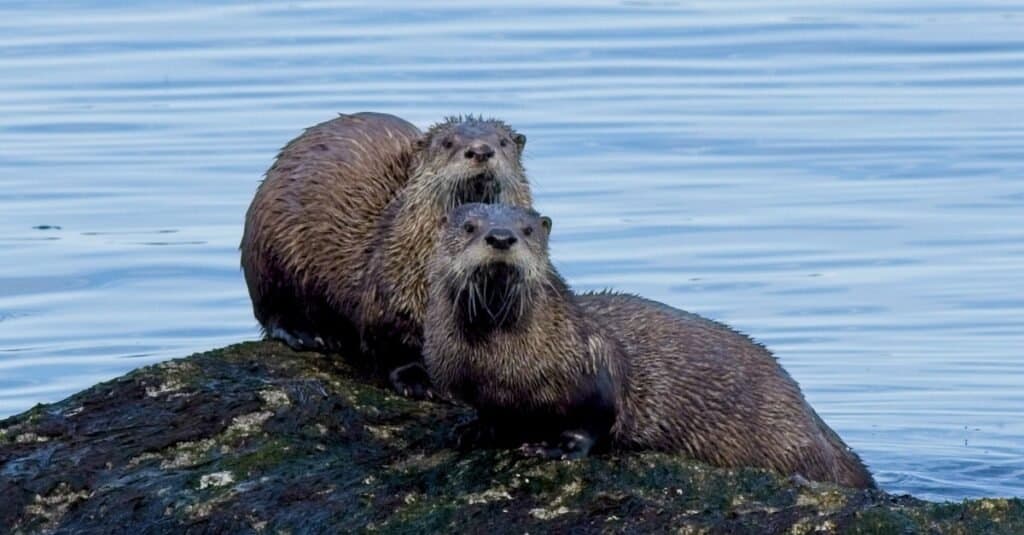
An array of wildlife calls Ruston and its surrounding areas home. The river otter is just one animal you may see there.
©iStock.com/pr2is
Ruston, WA, is home to various wildlife, including many species of birds and mammals. You’ll find otters, salmon, beavers, weasels, minks, ducks, frogs, bison, and even mountain goats. It’s an area full of many types of wildlife.
As you might imagine, tornadoes will also affect wildlife and people. Strong winds and flying debris can injure and kill animals caught in the storm. However, some animals may sense the atmospheric changes and escape.
The number of animals killed by tornadoes is unknown. However, this direct effect probably doesn’t greatly impact the area’s wildlife.
Tornadoes also damage trees and other plants. Animals may rely on these for food, shelter, and nesting. With them gone, the quality of the habitat may be decreased. Some animals, such as those in the middle of nesting season, may be affected directly.
Tornadoes can cause a range of behavioral changes, too. Some animals may seem anxious or fearful before and after the tornado. These behaviors may lead to injury and harm to the population. For instance, animals may stop breeding or caring for their young.
That said, tornadoes do have a positive impact on wildlife long-term. They can create new habitats, increasing biodiversity and enhancing the nutrient cycle. Dead trees enrich the soil, provide insect habitats, and allow new plants to grow.
Of course, the impact of tornadoes depends largely on the intensity and duration of the storm. Some tornadoes may have minimal impact, while others have a longer impact.
Where is Ruston Located on a Map?
Ruston is located in northwest Washington, just south of Seattle. Although it is nearly indistinguishable from the adjacent city of Tacoma, this residential area still retains its status as a separate municipality despite no longer being a company town. In 2012, the local government reclassified Ruston as a city.
Thank you for reading! Have some feedback for us? Contact the AZ Animals editorial team.

